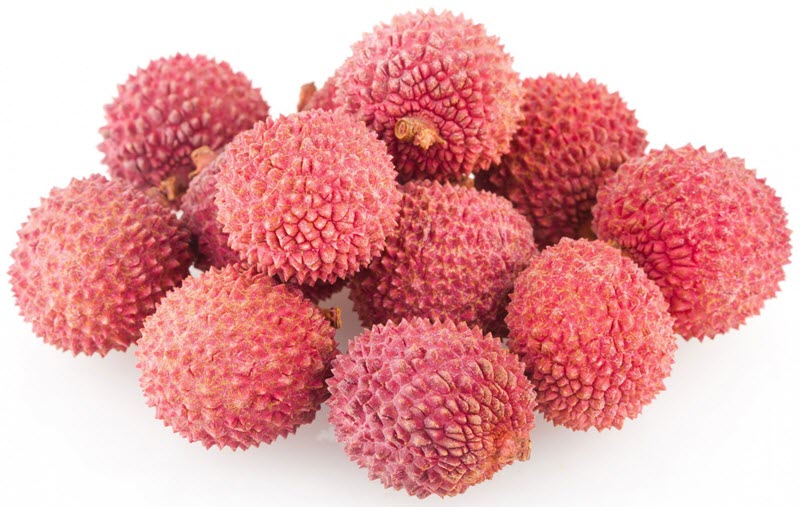 The exotic lychee fruit grows on tall evergreen trees found primarily in China. It can also be found in India, South Africa and a few countries in Southeast Asia. There are attempts to grow it in Australia and the United States due to its growing popularity.
The exotic lychee fruit grows on tall evergreen trees found primarily in China. It can also be found in India, South Africa and a few countries in Southeast Asia. There are attempts to grow it in Australia and the United States due to its growing popularity.
Its scientific name is Litchi chinensis. It the only member of the soapberry family.
It is a small fruit around two inches in length and forms an oval or a circle. The skin is green and then red or pinkish in color when the fruit is ripe. The skin has a tough, leathery texture and is not edible. The flesh inside is white and has a sweet taste. The smell is fragrant, like a perfume.
Most people enjoy the fruit fresh and find that’s when the taste is the most pleasant. Others claim the health benefits are increased when the fruit is dried and then eaten.
There is a hard seed in the middle of the fruit that is not edible. Cut the fruit in the center by turning it and then pull off each side. Remove the skin or use a spoon to scoop out the flesh of the fruit.
The fruit is eaten alone or added to desserts and salads. It is also used to flavor drinks such as cocktails.
What’s Healthy about the Lychee Fruit?
- Vitamin C – Fresh lychee contain 72 mg of this vitamin per 100 grams of fruit. Vitamin C helps build immunity and allows the body to fight off many diseases and even the common cold. It also helps produce serotonin which aids in brain health.
- Rutin – This is a bioflavonoid that contributes to healthy blood vessels. A shortage of bioflavonoids can increase the chances of blood vessels breaking and cause easy bruising.
- Fiber – Like most fruits, Lychee contains a lot of fiber which aids in digestive health and helps prevent both diarrhea and constipation. If also helps you feel full after eating for a long period of time which reduces hunger and the need to eat again. It also helps produce digestive juices which aids the body’s ability to adsorb the nutrients in food.
- Polyphenolic compounds and proanthocyanidins that help fight the free radicals that attack cells and can cause cancer and premature aging.
- Potassium – Which helps lower stress on your cardiovascular system and helps your body maintain a healthy fluid balance.
- Minerals include magnesium, copper, folate, and iron which are needed for healthy blood and circulation.
- Many disease fighting Antioxidants that aid in fighting cancer and heart disease.
- Other nutrients in the lychee fruit are: niacin, Vitamin B6, riboflavin, and protein.
The lychee fruit is high in sugar so it should be eaten in moderation, especially those people who suffer with diabetes.
You can find lychee fruit at health food stores in its dried version and fresh if it’s in season. Some websites offer it online but the fruit is only fresh for a few days so it’s often hard for it to survive shipping and still taste good.
The dried fruit is often called Lychee Nuts though not really a nut.
